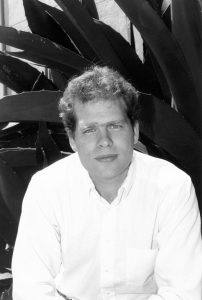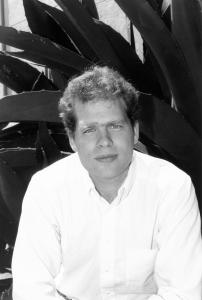
The most memorable direction pointed to on the program was Frederic Rzewski’s Coming Together, where the above quote, along with the rest of a letter from an inmate in Attica State Prison during the 1971 uprising, was featured in unremitting repetition. The prose was read in additive fragments and short phrasings by Michael Mohammed.
The speaker recited the words with the fervent confidence crucial to selling a piece that runs at least 15 minutes but features precious little variety. At first, the disjointed words and rhythmic instrumental tapestry were interesting in and of themselves. After several minutes of this, though, my ear began to tire of the lack of variety. Yet after the boredom and annoyance phases passed, assuming a listener's surrender to its minimalist technique, the music came alive and captivated with its interminable mantra. The powerful repetitions eventually somehow came to a crashing end, but Mohammed’s voice and the prisoner’s words resonated in my head well beyond the conclusion of the concert.
Coming Together was an apt title for the piece, played to end the concert, as it brought to the stage most of the evening’s performing cast in a seven-member ensemble. The rest of the evening featured much smaller groups, with most of the compositions also shooting off at various angles of minimalism. As the evening’s emcee, Jonathan Russell, put it the program consisted of “music with a lot of rhythm, a lot of groove ... from local young talent.”
The concert opened with Ryan Brown’s our friend, adam, featuring a rock–classical fusion typical of the composer’s style. It featured Russell on alto sax and Jeff Anderle in melodic conversation over a rhythmic groove provided by Brian Dowdy on electric guitar and Matthew McCright on piano. The rhythmic aspect seemed to simultaneously swirl and click, setting a vibrant backdrop. Russell and Anderle, members of the Sqwonk bass clarinet duo, have been known to blow large, double-reed instruments in unlikely fashions all around town, and always manage to rustle up fantastically shrill music together; Friday was no exception.
Travis Andrews took to the stage next, performing Nigel Westlake’s Hinchinbrook Riffs, a solo guitar work with digital delay. Westlake puts the delay to use to achieve a subtle effect, as the repetitions are never overbearing. Andrews, in essence, played a duet with a digital echo of himself. Harmonic clashes between music being played and music in the electronic reverb provided for tension and dramatic interest, as did occasional fragments of melody in an extreme register. The moto perpetuo was executed with both adroitness and sensitivity — a combination that made for pleasurable listening.
Art on the Edge, or Histrionics?
Andrews returned to the stage in the second half for an unfortunate encounter with an experimental composition by Luciano Chessa. The piece, titled Amadou, calls for lighting a candle, scraping guitar strings with scissors (and later even snipping a few), inserting objects into the guitar, and a handful of other tricks interspersed with strummed or plucked chords. I didn’t know which to fear more for —myself and my fellow audience members, or Andrews’ guitar. If a composer and performer choose to travel so close to the red line at the edge of art’s permissibility, they might as well cross it and go all out. What’s the point, after all, of breaking four of the guitar’s six strings and blowing out a candle? These came off as feeble histrionics, at best. Nowadays, a radical performer would have to smash the entire instrument, burn the pieces, and throw them at the audience if shock value was the aim.Another solo piece, Paul Dresher’s Blue Diamonds, was played by Matthew McCright on piano. Like Dresher’s other pieces that I have heard, the piece drags on in smug self-absorption. It sounded like an accompaniment to a marathon nocturne. Unfazed by the unceasing flow of notes, McCright performed admirably, with impressive stamina for such a lengthy piece.
By contrast, Max Stoffregen’s continually interesting and charming contribution titled the delicate flow of vines came as a highlight of the concert. Alisa Rose performed it with a strikingly strong sound on her violin, easily competing with the bass clarinet and the piano.
Jonathan Russell’s Night Dance also made an alluring impression of the evening. It opened with an enigmatic intertwining of careful motives, contrasting with a passionate, lively, jazzy section. Dowdy’s acoustic guitar, however, could have used some amplification to contend with Russell’s powerful clarinet playing.
Overall, “Music: Next Generation” made for a fun concert of local friends showcasing each other’s varied creativity, and turning up some interesting surprises.

